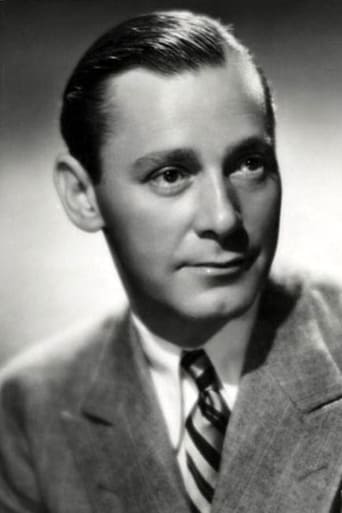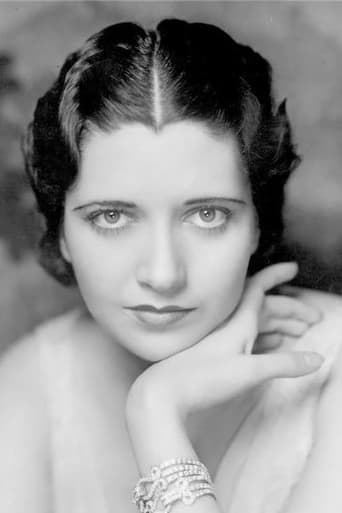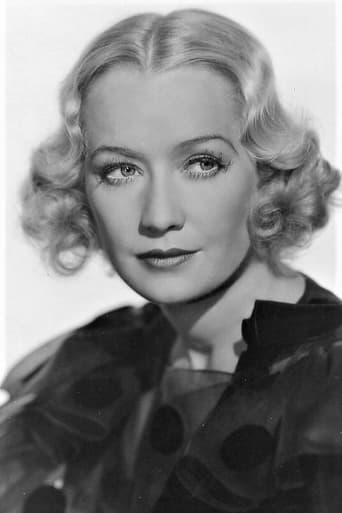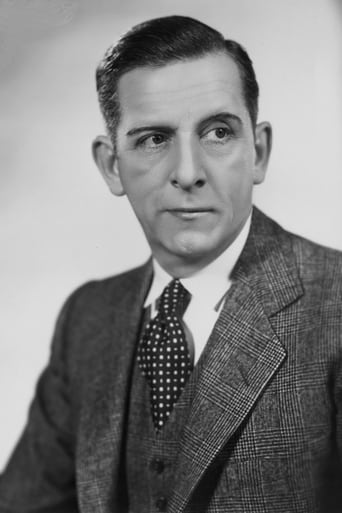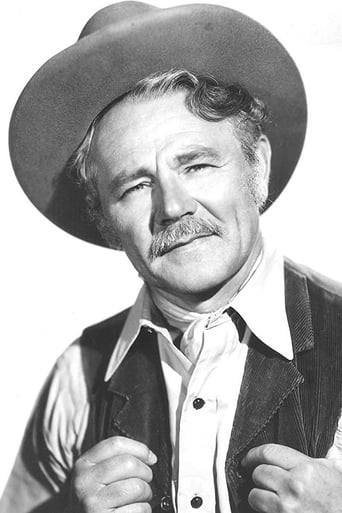SpuffyWeb
Sadly Over-hyped
SunnyHello
Nice effects though.
Aiden Melton
The storyline feels a little thin and moth-eaten in parts but this sequel is plenty of fun.
Staci Frederick
Blistering performances.
e-70733
From the script story to the completed film, it is a perfect and beautiful hoax.
Thus, the swindler robbed the lady's strongbox gracefully, and the movie controlled the audience's emotion delicately.
Therefore, the essence of the so-called Lubitsch touch actually is such a kind of aesthetic feeling of script construction and a kind of expression of the deliberate atmosphere with slight sorrow. Therefore, incomparable romance and sensitivity can be born naturally in a old fashion Hollywood story.
chaos-rampant
For cinema of this era I go to Pabst for ecstatic hovering out of self, the self that finds itself at the mercy of narratives; a true master that filmmakers like Lynch are still tapping into the potential of what he showed. Sternberg gives me feverish exaggeration of the same, a kind of grotesque sculpting in emotional air. Pabst seeks to transcend the constraints imposed by fictitious reality on self, Sternberg gives into the anguish they create. Lang turns these same constraints into monumental machinery that strike awe, but his way is much less interesting overall I think. And then there's this other maker who made the leap from Germany to Hollywood. Yet another way of dealing with fictitious reality here. With Lubitsch I come for the joyous dismantling of expectation; the constraints of fictions, our expectation that story plays out a certain way, are marvelously upended, opening us up to paradox and surprise. Here fictions are fanciful guises we put on to push each other, the constraints are opportunities for improvisation. There's this famed thing people call the Lubitsch 'touch', often in vague terms of exaltation, as any synonym for mastery. It's a specific thing he masters; spontaneous illogicality. You'll see a great demonstration in just the opening sequence here. It's one I'll keep with me when needing to discuss Lubitsch. A man lies unconscious in a dark empty apartment at night; something sinister has happened. Now cut to a man and woman meeting in another place. They're both royalty we find out, baron and countess. She had to sneak in there to meet him, improper mischief is implied, a desire to conceal. Soon we understand that neither is who we thought they were and the place where they meet is right next door to the unconscious man.It's a small masterstroke in pushing back horizon with just a few gestures. Like when the man gets up angry at having been found out, locks the door, draws the curtains; we imagine violence is coming. But they sit right back to eat, kindred souls delighted in each other's brilliant boldness of play-acting. The rest of the film flows by with much the same play-acting. We see a woman being set up to be conned, a rich Parisienne who scoffs at the men who desire her but falls for his suave charm. He insinuates himself into her home and begins controlling a story, fictitious reality. The suave charm of the film lies in seeing him, ever the cunning narrator, con his way out of difficult situations that might expose him while the noose tightens around him. Eventual unmaskings come with a certain largesse of heart that can only come by the hand of a filmmaker who sees fictitious reality as one large stage play and revels in the illusoriness of it all. It beats sulking into a corner, taking the caprices of human behavior to heart. So no hard feelings on her part at having been set up with fictitious romance. She shoos them out like mischievous kids. In turn he regrets that he couldn't split himself in two and leave one self behind to live a life with her. Herbert Marshall has more ruthless eyes than needed to convey longing here (or perhaps the point is that he cannot resist feigning to the end); but he's superb as wily narrator.But how about this notion as well. His girlfriend partner in crime has been in on the con all along, disguised as secretary in the same house. Had she not caved in to jealousy at the last moment, they would have pulled their plot clean off. It's this outpour of impulsive self that destroys the fiction and allows us to have the generous letting go of.
writtenbymkm-583-902097
Thank you, "Dailyshampoo48," whoever you are! I feel like I used to feel when my parents insisted on moving every year or two the whole time I was growing up (I went to 5 high schools in 5 different cities in 4 years). Every time we moved I was totally displaced, plopped down into a new, strange, often hostile environment, baffled, confused, lost. That's how I feel when I read all the rave reviews of this absolute and total piece of pretentious B.S. The dialog was stilted and often incomprehensible. The acting was a joke (a bad joke). I don't care how esteemed or glorified or respected this bizarre filmmaker is or was, this movie (and I use the term loosely) is awful. I'm not even sure what it's supposed to be about (other than what I've read). I give it a big fat zero.
wes-connors
In romantic Venice, attractive pickpocket Miriam Hopkins (as Lily Vautier) meets professional thief Herbert Marshall (as Gaston Monescu). After stealing from each other, the two are mutually attracted. Quickly, they become as thick as thieves. Later, in romantic Paris, trouble begins as Mr. Marshall steals a purse from elegant and beautiful widow Kay Francis (as Mariette Colet). Marshall maneuvers himself into Ms. Francis' employ as her secretary with Ms. Hopkins as his assistant. They plan to steal a fortune from Francis, but she and Marshall also become romantically involved..."Trouble in Paradise" is a triumph for both director Ernst Lubitsch and for filmmaking, in general. It is remarkable how quickly technology brought talking films from crude to smooth. The film was ignored by the "Academy Awards" but made Top 10 polls - most respectably appeared at #2 for the year on "The New York Times" annual list. Co-stars Francis, Hopkins and Marshall are at career highs. Screenplay writer Samson Raphaelson and the Paramount studio crew contribute marvelous work for Mr. Lubitsch. Certain characters are criminals, but they never hurt anyone.********* Trouble in Paradise (10/21/32) Ernst Lubitsch ~ Miriam Hopkins, Kay Francis, Herbert Marshall, Edward Everett Horton
